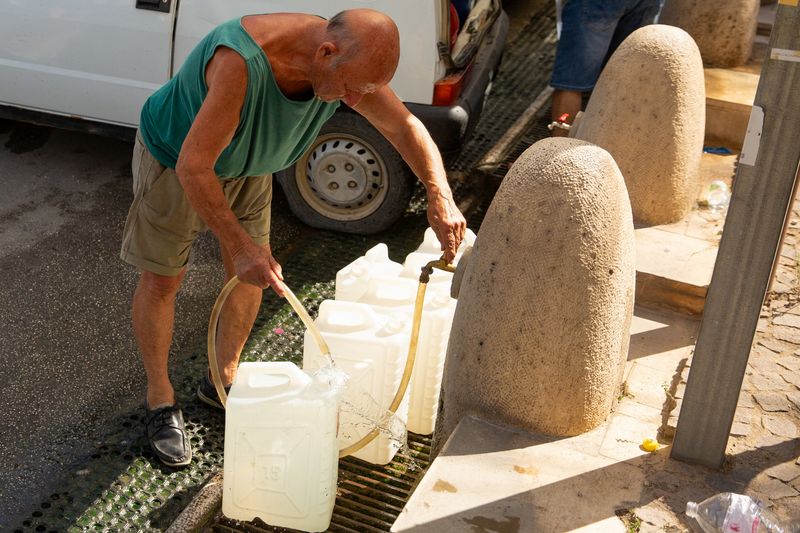By David Stanway
SINGAPORE (Reuters) - Countries need a new international pact to fix a mounting water crisis that could cut economic growth by at least 8% and put half the world's food supplies at risk by 2050, an OECD-backed commission said on Thursday.
Climate change, destructive land use and chronic mismanagement has put the global water cycle under "unprecedented stress", said the Global Commission on the Economics of Water (GCEW), a two-year research initiative set up by the Netherlands in 2022.
Densely populated regions like northwestern India, northeastern China and southern and eastern Europe are especially vulnerable to water shortages, it said.
Governments must work together to create incentives to transform how water is consumed and ensure that investment in vital infrastructure reaches the right places, GCEW said in its final report.
"We are going to have to set common goals for water sustainability," said Singapore President Tharman Shanmugaratnam, GCEW co-chair.
"Ultimately, it will require a global water pact. It is going to take several years to get there, but we are going to start that process," he said at a briefing ahead of the report's launch.
The report said global water supplies can no longer be counted on, partly as a result of shifting rainfall patterns, with each 1 degree Celsius of warming estimated to increase atmospheric moisture retention by 7%.
"For the first time, we are actually changing the very source of all freshwater - namely precipitation," said Johan Rockstrom, director of the Potsdam Institute for Climate Impact Research and another commission co-chair.
As well as "blue water" in rivers and lakes, the commission looked at "green water" contained in soils and plant life. After evaporating, green water provides around half of global rainfall in a process known as "atmospheric rivers".
Rising temperatures have created a vicious cycle, with lower soil moisture worsening droughts and wildfires and causing more degradation and biodiversity loss, further disrupting those atmospheric river flows, the commission said.
Regions relying on high levels of irrigation could suffer from water storage capacity declines. On current trends, global cereal production could fall by as much 23%.
Financing mechanisms are required to encourage investment in water infrastructure, especially in more vulnerable countries, and banks should also make lending conditional on protecting water supplies, the report said.
Global efforts are also needed to price water correctly and "redeploy" an estimated $600 billion in annual agriculture subsidies that encourage overconsumption and the planting of water-intensive crops in unsuitable regions, said Ngozi Okonjo-Iweala, Director General of the World Trade Organization and another GCEW co-chair.

While multilateral cooperation is needed to address threats to global water supplies, growing shortages could aggravate geopolitical tensions, said Genevieve Donnellon-May, a researcher at the Oxford Global Society think tank, who studies water politics.
"One worry is that growing water scarcity could lead to less transboundary cooperation, both at a subnational level… and also between nations," she said.